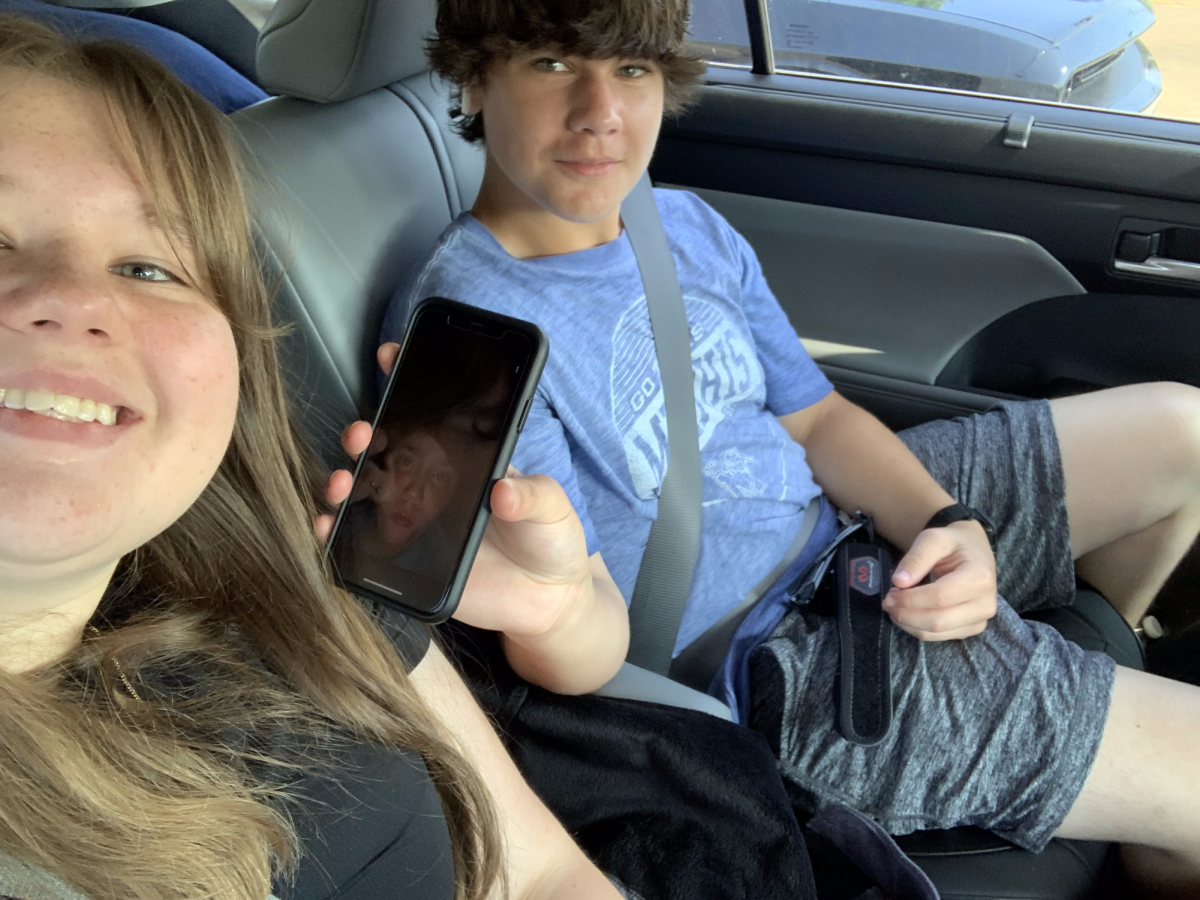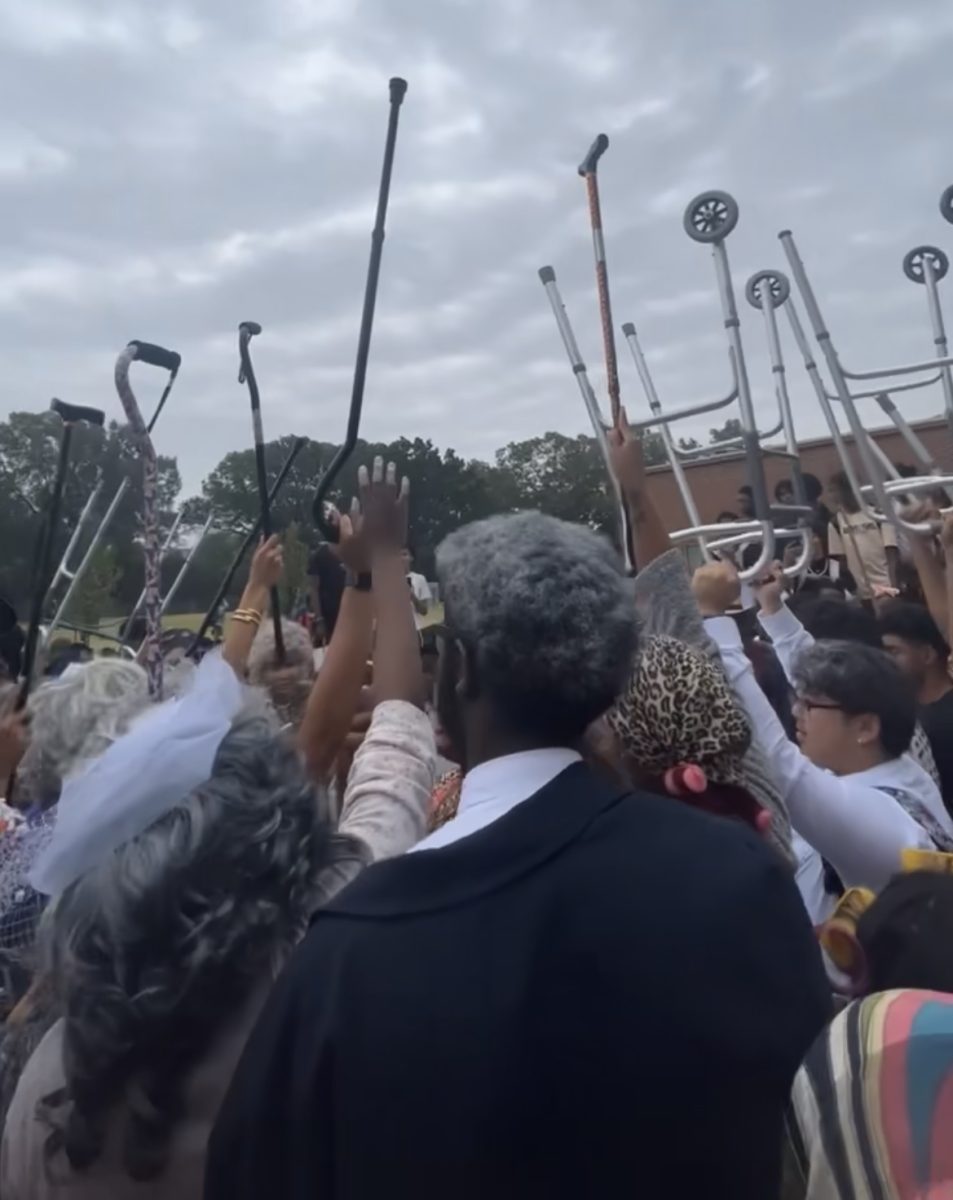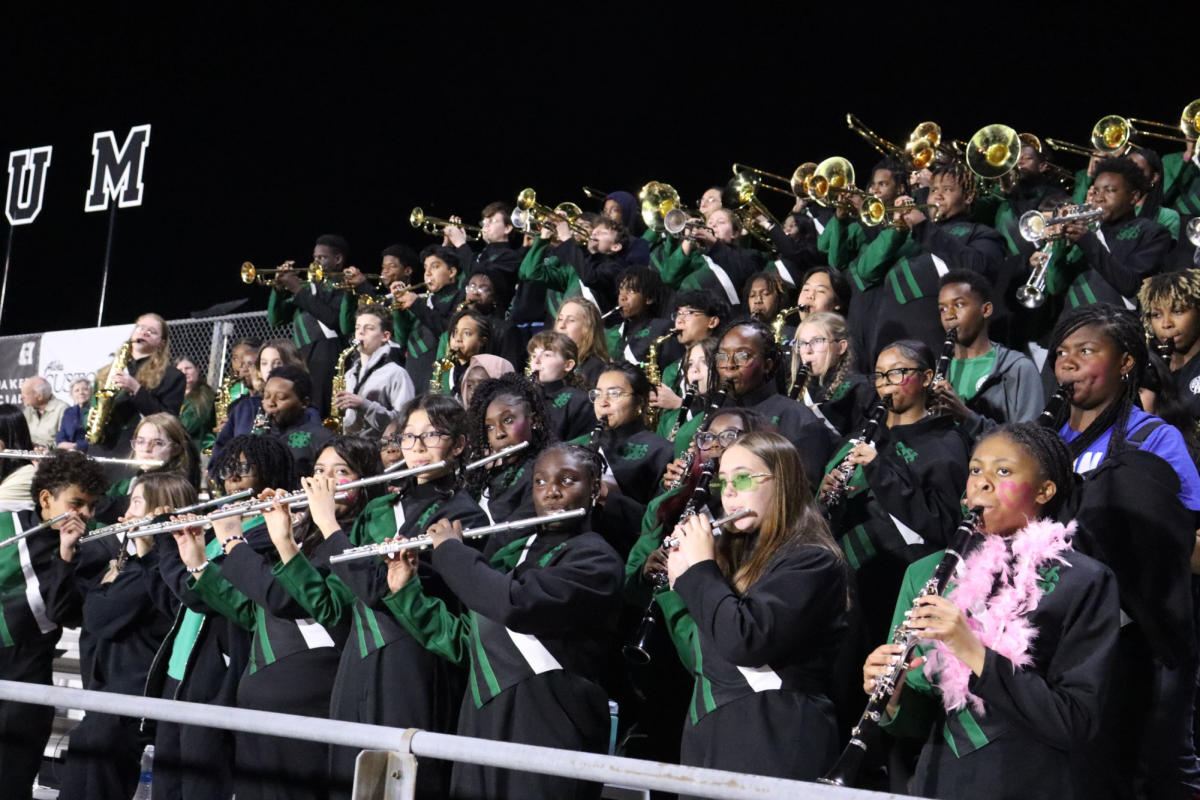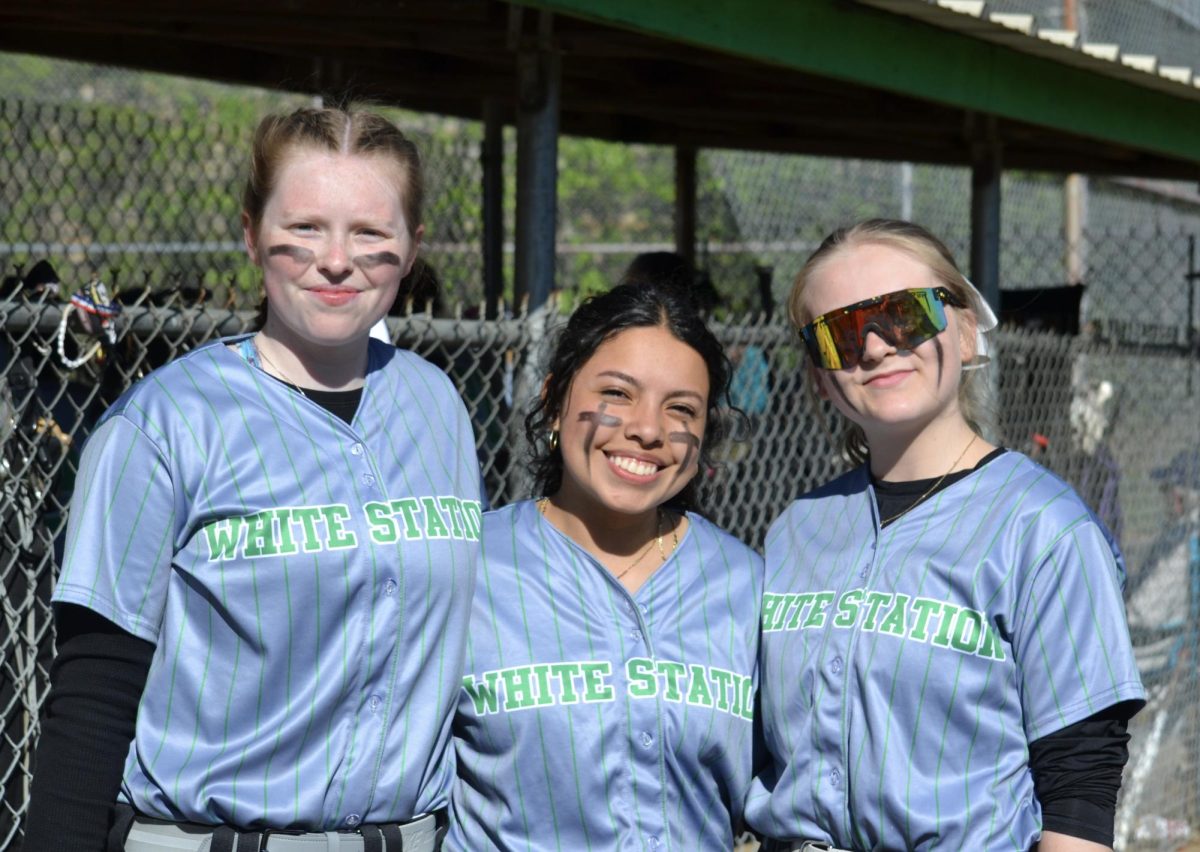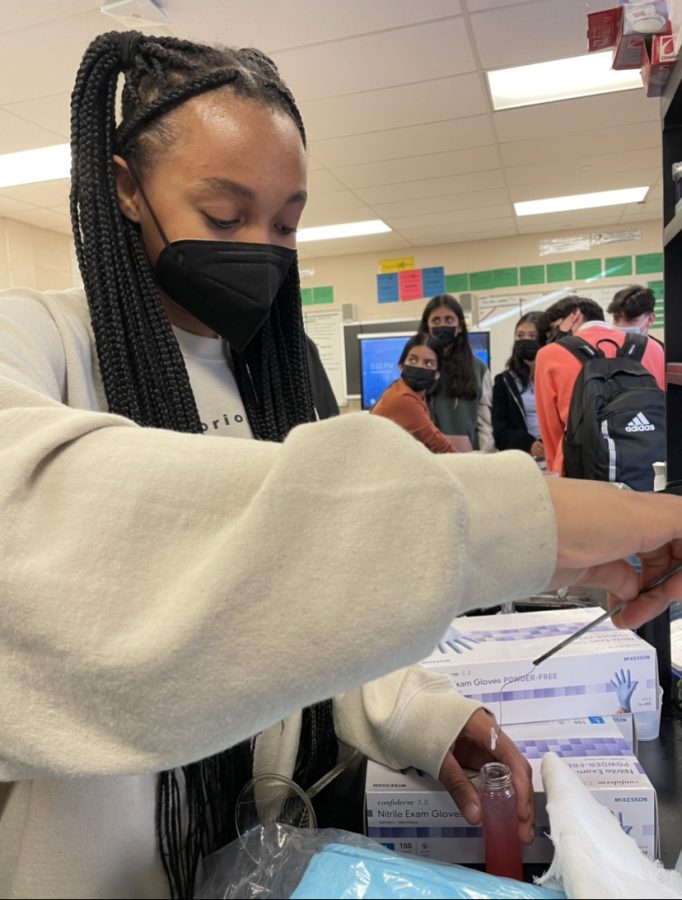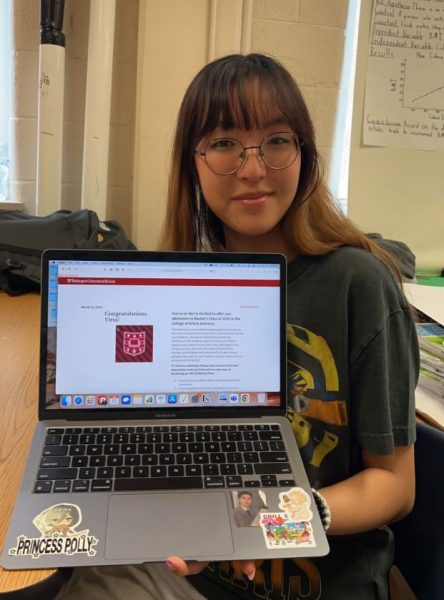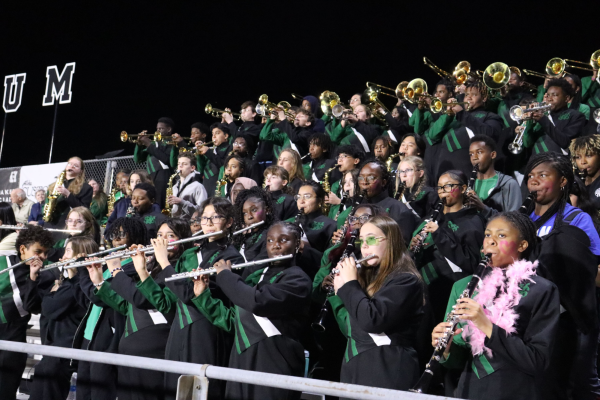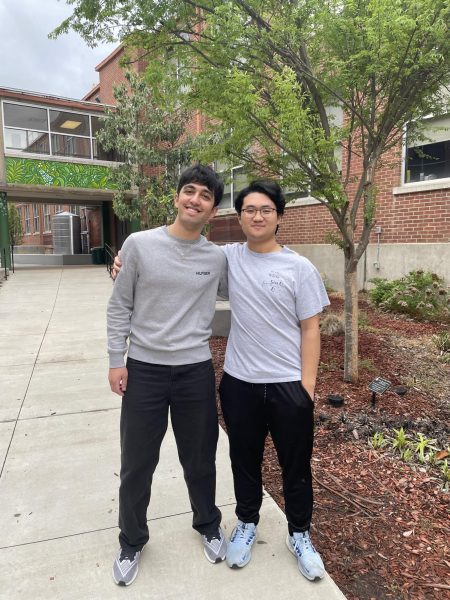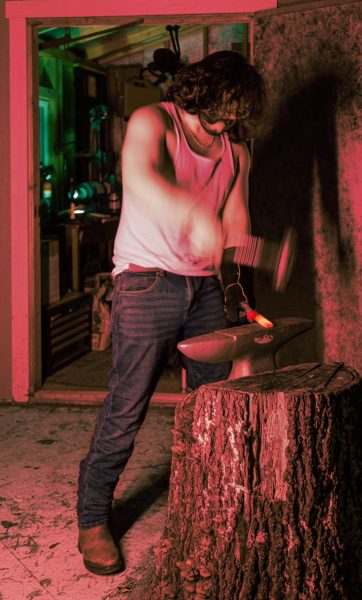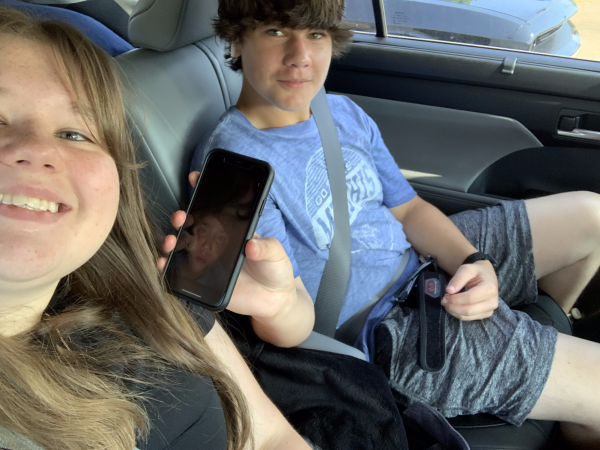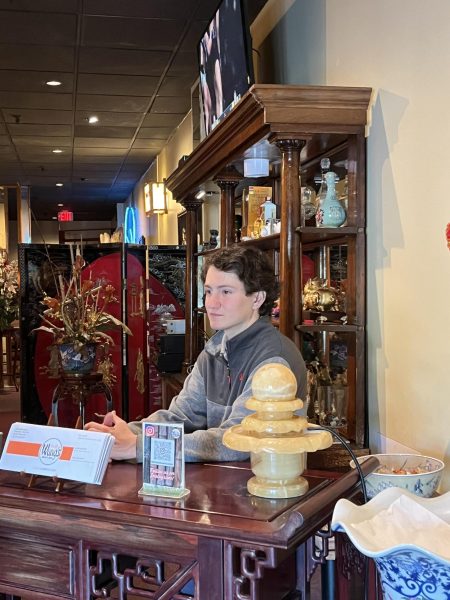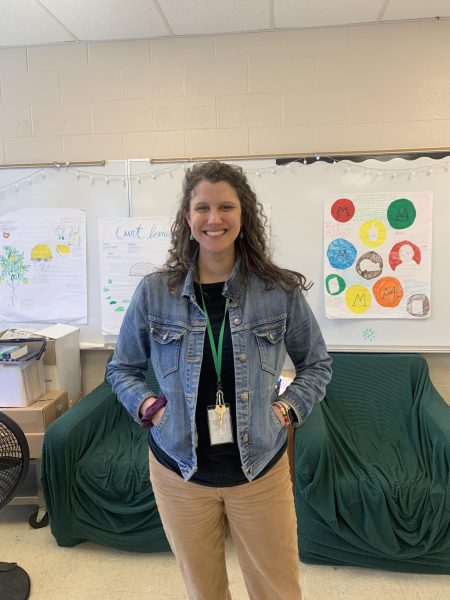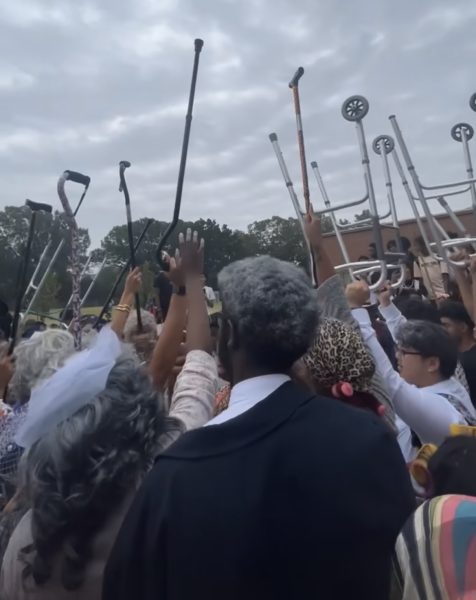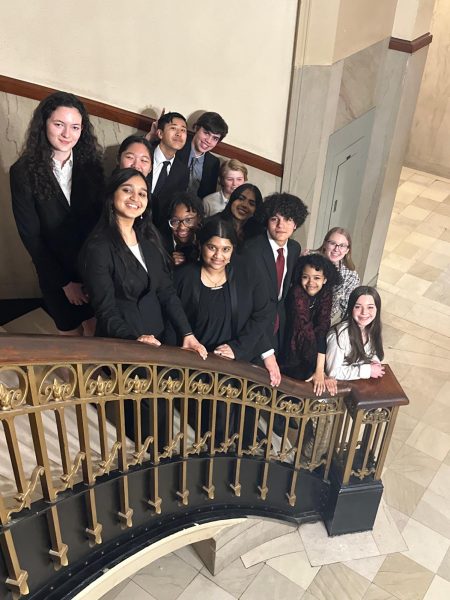The cost of learning: the funding behind White Station’s biology program
Students from the Biology Research Club extract DNA from a strawberry as part of an experiment in Dr. Madu’s lab. Thanks to the money from recent grants, students have been able to conduct more advanced research than they would ordinarily be able to in high school.
New beakers, new batteries, new benches. For those who love science, the pursuit of knowledge often comes at a high cost–literally. In many cases, district funding can only go so far and grant money becomes important to pick up where it leaves off.
Several years ago, Dr. Chikezie O. Madu, the AP Biology, Anatomy, and dual enrollment Biology teacher received a $15,000 grant through the University of Tennessee Science Center which was used to purchase equipment and organize a week-long biomedical summer camp to give students lab experience. Another $30,000 grant went towards educating students in genetics. Last September, the Assisi Foundation, a foundation seeking to support learning about genetics and genomics through personalized medicine, approved White Station for a $153,000 grant — money which will significantly strengthen the biology program.
“Equipment is very expensive, and while they’re not the solution to our academic issues, they are a huge contributing factor to the success of the students,” Madu said. “These grants are significant because they make it possible for us to buy some of these things the students need for us to be able to educate them properly.”
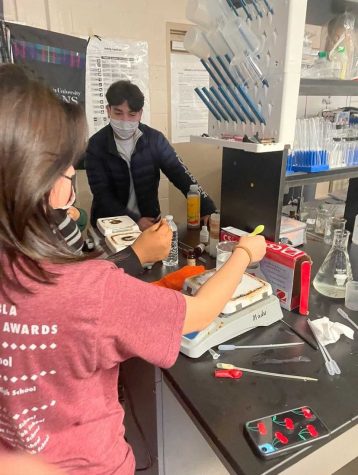
A major problem for biology teachers in recent years has been how rapidly the scientific world has changed, often making information which was once scientific fact inaccurate
. To address this issue, Madu has helped to organize a yearly program by which teachers can be informed about the latest advancements in biology in order to better educate their students.
“One of the problems we see is that science is moving faster than a lot can catch up with, so the training some of us got in college does not address some of the modern scientific practices,” Madu said. “The idea of training ourselves as teachers and trying to catch up with what is currentin the molecular science world is very important so we can pass it on to students.”
This information is not just important to teachers, and Madu plans to use the last few weeks of school to extend this helpful information to his students in order to better prepare them for a constantly shifting world of science.
“We’re going to train our students, expose them early to these things in the hope of sparking their interest early,” Madu said. “And even if they don’t go into STEM careers, they will at least have some basic, comfortable knowledge about STEM and science.”
Another important use for the money will be development of a new and improved biology lab on the second floor of the main building. This lab will offer more room than do the current labs, and will help achieve the goal to provide students access to a graduate-level biology lab. The lab is still under development; however, it plans to be operational before the end of the year.
“Right now, at least for the curriculum, we can afford to buy the things we need,” Madu said. “But our dream is not to stop there. Our dream is to make White Station labs so well equipped that students can actually perform graduate-level research here.”
By using this money to improve labs and other resources at White Station, Madu hopes to strengthen the science program further, particularly when it comes to testing.
“We want our biology scores on the state exams to be better than they are,” Madu said. “They’ve been increasing recently but we can still do better. And it’s not necessarily anyone’s fault, but we are hoping that if we can get our students interested in science, their appreciation for the knowledge would make them want to study to help them do better on the end of course exams.”
But scores are only a part of it; Madu hopes to extend students’ knowledge far beyond what they need for a standardized test. To him, fostering a lifelong passion for learning, encouraging students to be independent thinkers and providing them with real-world experience to carry into future careers is what really makes these grants so valuable.
“If we can ignite the passion to learn and give them the ability to be independent researchers, I think we’ve accomplished a major goal of science,” Madu said. “Students should be able to come to class and join the learning process. And without some of these things, it would just be a sitting class and lecture, and that’s not what education should be. At least not science education.”
Your donation will support the student journalists of White Station High School. Your contribution will allow us to purchase equipment and cover our annual website hosting costs.



